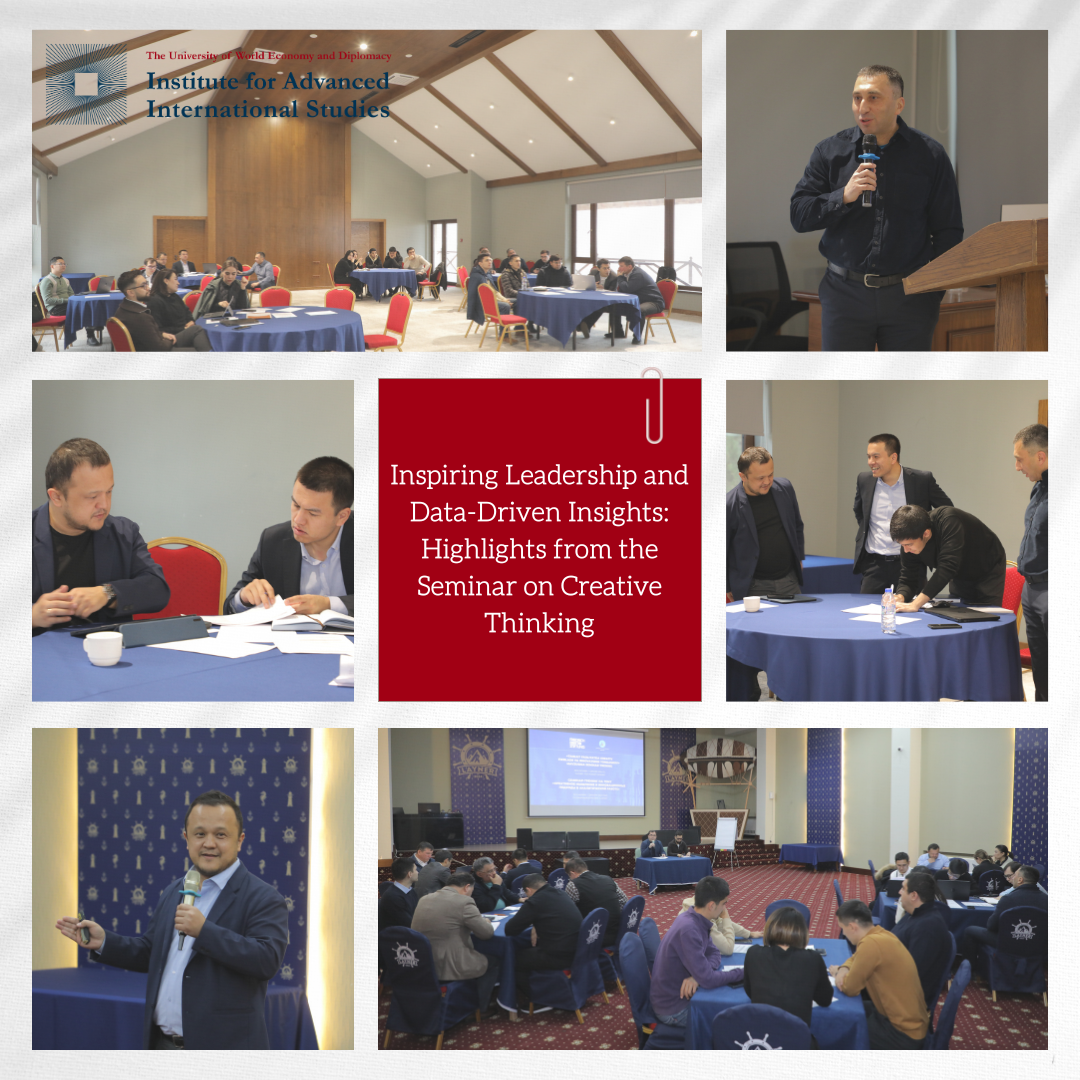
The seminar-training “Creative Thinking and Innovative Approaches in Analytical Work” brought together leading representatives from Uzbekistan’s foremost think tanks to engage in a dynamic exchange of ideas and expertise. Organised by the Centre for Development Strategy in collaboration with the Friedrich Ebert Foundation, the event took place from 29 November to 1 December in Tashkent Region. Over three days, participants delved into leadership, critical thinking, big data analysis, and other innovative methodologies aimed at enhancing analytical practices.
Attended by experts from institutions such as the Institute for Advanced International Studies (IAIS), the Centre for Economic Research and Reforms (CERR), the Institute for Strategic and Regional Studies (ISRS), and the Academy of Public Administration (APA), the seminar featured interactive sessions, workshops, and teambuilding exercises, covering a diverse range of topics crucial to modern analytical work. From critical thinking development and data visualisation techniques to economic trend forecasting and rapid problem-solving skills, each session was meticulously designed to address the evolving demands of the analytical landscape.
A presentation delivered by Shakhboz Akhmedov, Deputy Director of IAIS, on “Leadership and Its Role in Organisational Success” offered a comprehensive exploration of how effective leadership fosters innovation, cohesion, and goal-oriented progress within organisations. Mr. Akhmedov’s engaging delivery, supported by case studies and practical strategies, resonated strongly with participants, setting an inspirational tone for the seminar.
Equally impactful was the session led by Rustam Makhmudov, Senior Research Fellow at IAIS, titled “Big Data Analysis and Its Application in Analytical Activities”. He introduced participants to advanced tools and methodologies for interpreting large datasets. Mr. Makhmudov highlighted the pivotal role of big data in shaping evidence-based policies and analytical precision, sparking vibrant discussions among attendees about its practical implementation in their respective fields.
The seminar concluded with another compelling session by Mr. Akhmedov on “Teamwork and Project Management in Analytical Centres”. His final presentation highlighted the significance of collaborative efforts and efficient project coordination in achieving organisational goals, providing a fitting conclusion to the comprehensive programme.
This training exemplifies the commitment of Uzbekistan’s think tanks and their international partners to fostering a culture of innovation and excellence in analytical work. It also serves as a vital step toward equipping experts with the tools and strategies needed to navigate the complexities of a rapidly changing world.